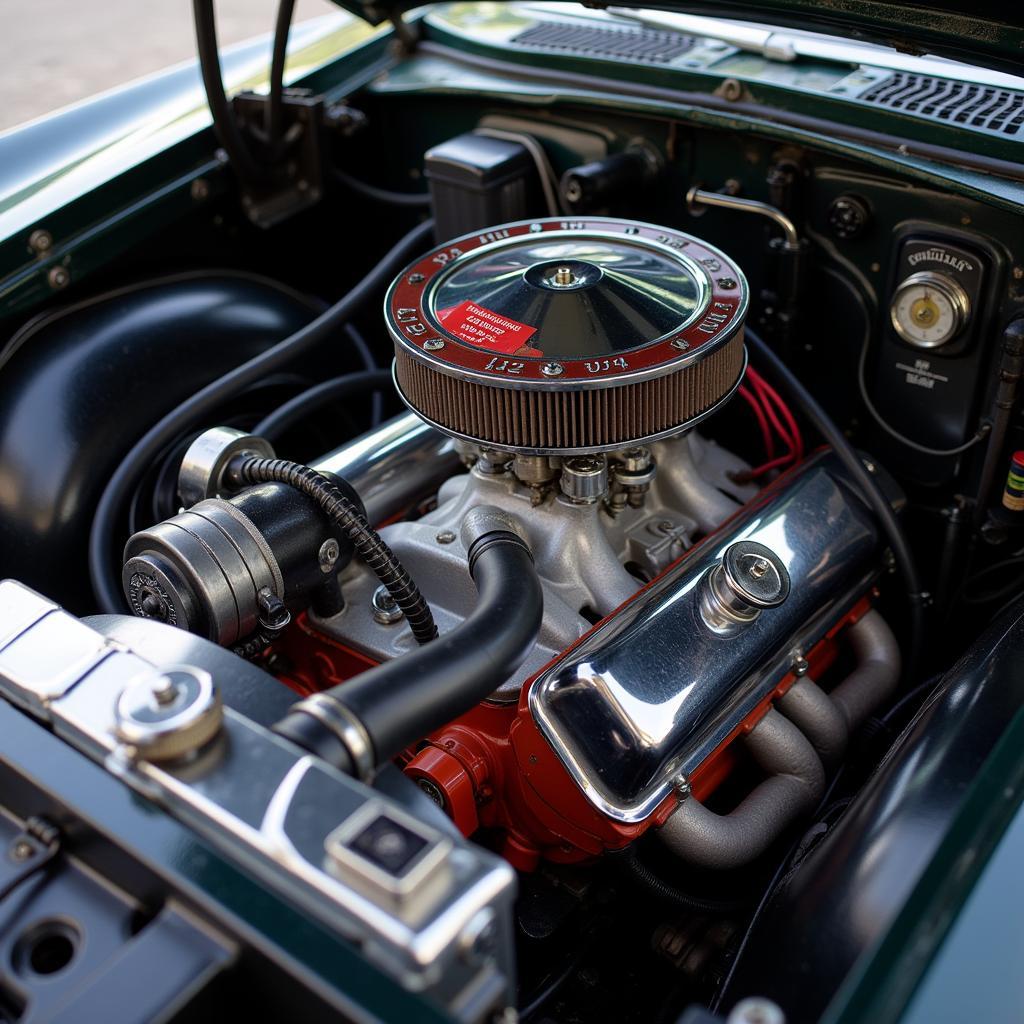Maintaining the heart of your prized classic car is paramount. Show Car Classic Car Engine Maintenance isn’t just about keeping it running; it’s about preserving history, ensuring peak performance, and maximizing your investment. This guide delves into the intricacies of classic car engine care, providing expert advice for both seasoned mechanics and passionate owners.
Understanding the Basics of Show Car Classic Car Engine Maintenance
Classic cars, unlike their modern counterparts, demand a more hands-on approach to engine maintenance. They often lack the sophisticated electronic systems that handle many tasks automatically. This means you, the owner or mechanic, play a vital role in ensuring longevity and performance. From regular oil changes to meticulous inspections, proactive maintenance is key.
Why is Show Car Classic Car Engine Maintenance Different?
Classic car engines, often built with different materials and tolerances, require specialized lubricants and maintenance schedules. Understanding these nuances is crucial. For example, older engines might benefit from higher viscosity oils than modern engines. Furthermore, the absence of computerized diagnostics means relying on traditional troubleshooting methods, demanding a keen eye and ear for subtle signs of trouble.
 Classic Car Engine Compartment Detail
Classic Car Engine Compartment Detail
Essential Show Car Classic Car Engine Maintenance Practices
Regular maintenance is the bedrock of a healthy classic car engine. These essential practices will keep your engine purring like a kitten:
-
Regular Oil Changes: Change your oil and filter according to the manufacturer’s recommendations, or every 3,000 miles if no specific guidance is available. Use the correct oil viscosity for your specific engine.
-
Cooling System Care: Flush the cooling system annually and inspect all hoses and connections for leaks or wear. A properly functioning cooling system prevents overheating, a major enemy of classic engines.
-
Fuel System Maintenance: Clean the fuel system periodically to remove varnish and deposits that can clog carburetors or fuel injectors. Consider using a fuel stabilizer if the car sits for extended periods.
-
Ignition System Check: Inspect spark plugs, wires, distributor cap, and rotor for wear and replace as needed. A strong ignition system ensures efficient combustion.
-
Valve Adjustment: Adjust the valves according to the manufacturer’s specifications. Proper valve clearance is critical for optimal performance and engine longevity.
Troubleshooting Common Classic Car Engine Problems
Even with meticulous maintenance, issues can arise. Here are some common problems and how to address them:
My Classic Car Won’t Start! What Should I Do?
Check the battery, starter, and ignition system. Ensure the fuel system is supplying fuel to the carburetor or fuel injectors.
My Classic Car Engine is Overheating. What Could Be the Cause?
Look for leaks in the cooling system, a faulty thermostat, or a clogged radiator.
Why is My Classic Car Engine Making Strange Noises?
Unusual noises can indicate a variety of issues, from worn bearings to loose components. A thorough inspection is necessary to pinpoint the source.
“Regularly checking fluid levels and listening for unusual noises can prevent small problems from escalating into major repairs,” advises John Miller, a renowned classic car mechanic with over 40 years of experience.
Conclusion: Keeping Your Classic Car Engine Running Smoothly
Show car classic car engine maintenance is an ongoing commitment, but the rewards are immeasurable. By following these guidelines and staying proactive, you can ensure your classic car’s engine remains a testament to automotive history for years to come. For any assistance or further advice, connect with AutoTipPro at +1 (641) 206-8880 or visit our office at 500 N St Mary’s St, San Antonio, TX 78205, United States.
FAQ
- What type of oil should I use in my classic car engine?
- How often should I change the coolant in my classic car?
- How can I prevent rust in my classic car’s engine?
- What are the signs of a failing fuel pump in a classic car?
- How do I adjust the timing on a classic car engine?
- What are the common causes of oil leaks in classic car engines?
- How can I improve the fuel efficiency of my classic car?




Leave a Reply